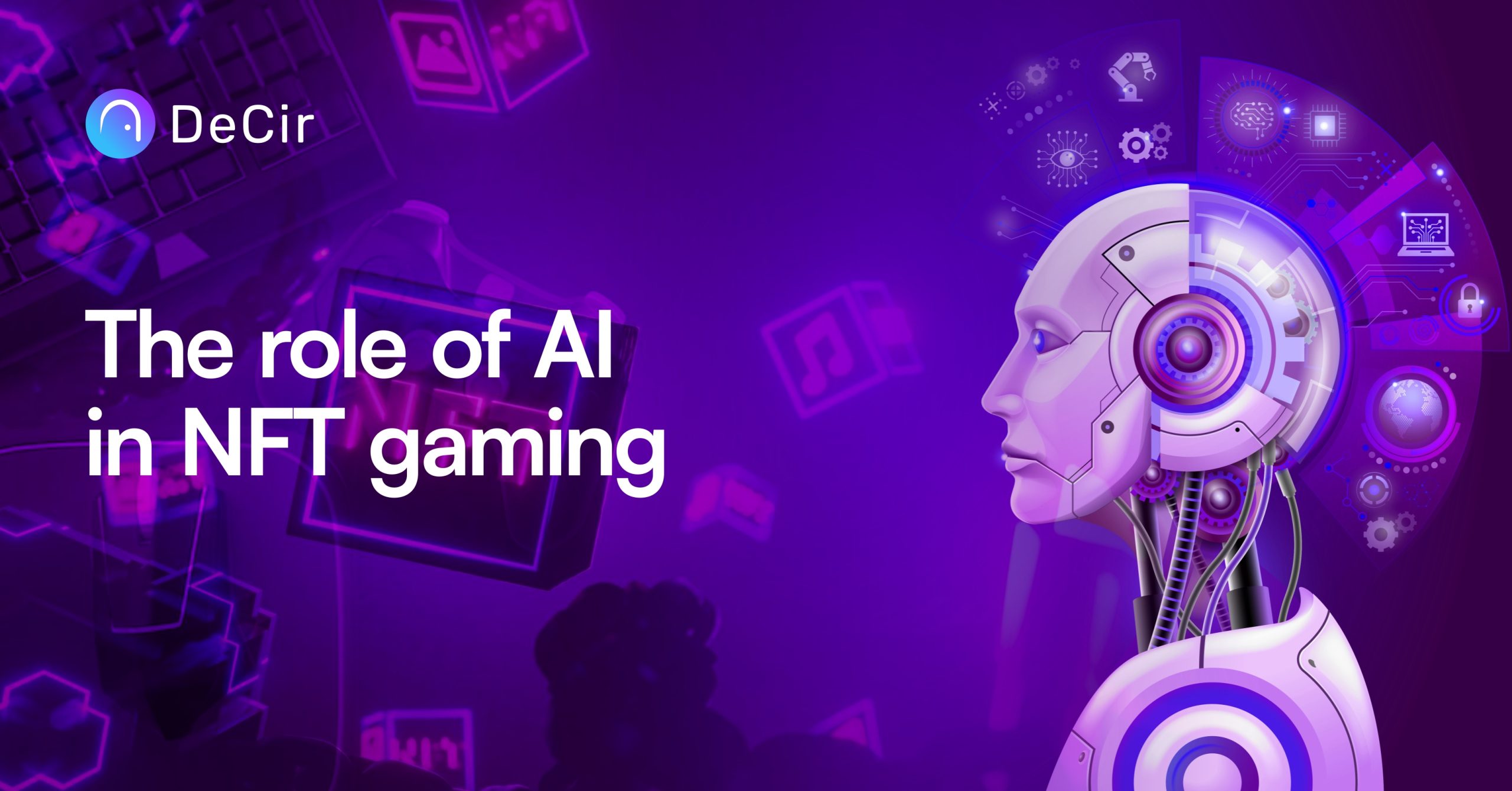Artificial Intelligence (AI) and Non-Fungible Tokens (NFTs) are revolutionizing the gaming industry, offering new dimensions of interactivity, ownership, and immersion. The combination of AI and NFTs opens up endless possibilities for game development, content creation, and player experiences. In this article, we will delve into the transformative role of AI in NFT gaming, exploring how AI is shaping the future of this rapidly evolving landscape.
TL;DR
- AI revolutionizes NFT gaming by generating unique content, enhancing immersion, and personalizing player experiences.
- AI-powered chatbots and assistance ensure real-time support and fair play in multiplayer games.
- AI-generated NFTs and decentralized virtual economies create new markets for digital assets, empowering players with true ownership.
AI-Driven Procedural Content Generation
One of the most significant contributions of AI to NFT gaming is its ability to drive procedural content generation. AI algorithms can dynamically create unique game assets, levels, quests, and even entire virtual worlds.
This empowers developers to offer personalized experiences to players, ensuring that each encounter feels fresh and exciting. Procedural generation eliminates the need for manual content creation, reducing development time and costs while increasing the variety and replayability of games.
With AI, games can adapt to player preferences and behaviors, ensuring that the content generated matches their individual tastes. This level of personalization enhances engagement and immersion as players feel a deeper connection with the virtual universe they inhabit. Additionally, AI can generate AI-driven non-player characters (NPCs) with realistic behaviors, making game worlds feel more alive and dynamic.
AI-Powered Player Support and Assistance
AI plays a crucial role in enhancing player support and assistance in NFT gaming. AI-powered chatbots and virtual assistants can provide real-time guidance, answer queries, and solve players’ problems. These intelligent systems can analyze vast amounts of player data and offer personalized recommendations, helping players progress and overcome challenges.
Furthermore, AI can assist in detecting and preventing cheating in online multiplayer games. By analyzing player behavior and patterns, AI algorithms can identify suspicious activities and take appropriate actions to maintain fair play. This ensures a balanced and enjoyable experience for all players, promoting a healthy gaming environment.
Interesting piece: The Inspiring story of Steve McCurry
AI-Generated NFTs and Virtual Economies
AI’s impact on NFT gaming goes beyond gameplay mechanics. AI algorithms can generate unique, AI-generated content that can be minted as NFTs. These AI-generated NFTs can represent virtual items, artwork, or even procedurally generated characters. By combining AI-generated content with the ownership and tradability of NFTs, a new market for digital assets and collectibles can emerge.
Players can acquire, trade, and collect these AI-generated NFTs, allowing them to own unique and scarce virtual items. NFT marketplaces and platforms powered by AI can also provide personalized recommendations based on players’ preferences, making it easier for them to discover and acquire desired NFTs.
Moreover, AI can contribute to the development of decentralized virtual economies. By leveraging AI algorithms, developers can create self-sustaining ecosystems where AI-driven NPCs interact with players and contribute to the economy. This fosters player engagement and the ability to earn real-world value by monetizing in-game assets through NFT auctions and marketplaces.
Also read: Explaining ERC-6551 NFT standard
Conclusion
AI’s integration into NFT gaming brings unprecedented innovation, creativity, and immersion. From procedural content generation and personalized player assistance to AI-generated NFTs and decentralized virtual economies, AI’s role in NFT gaming is transformative. The combination of AI and NFTs opens up a new frontier for game development, fostering player ownership, interactivity, and economic opportunities.


